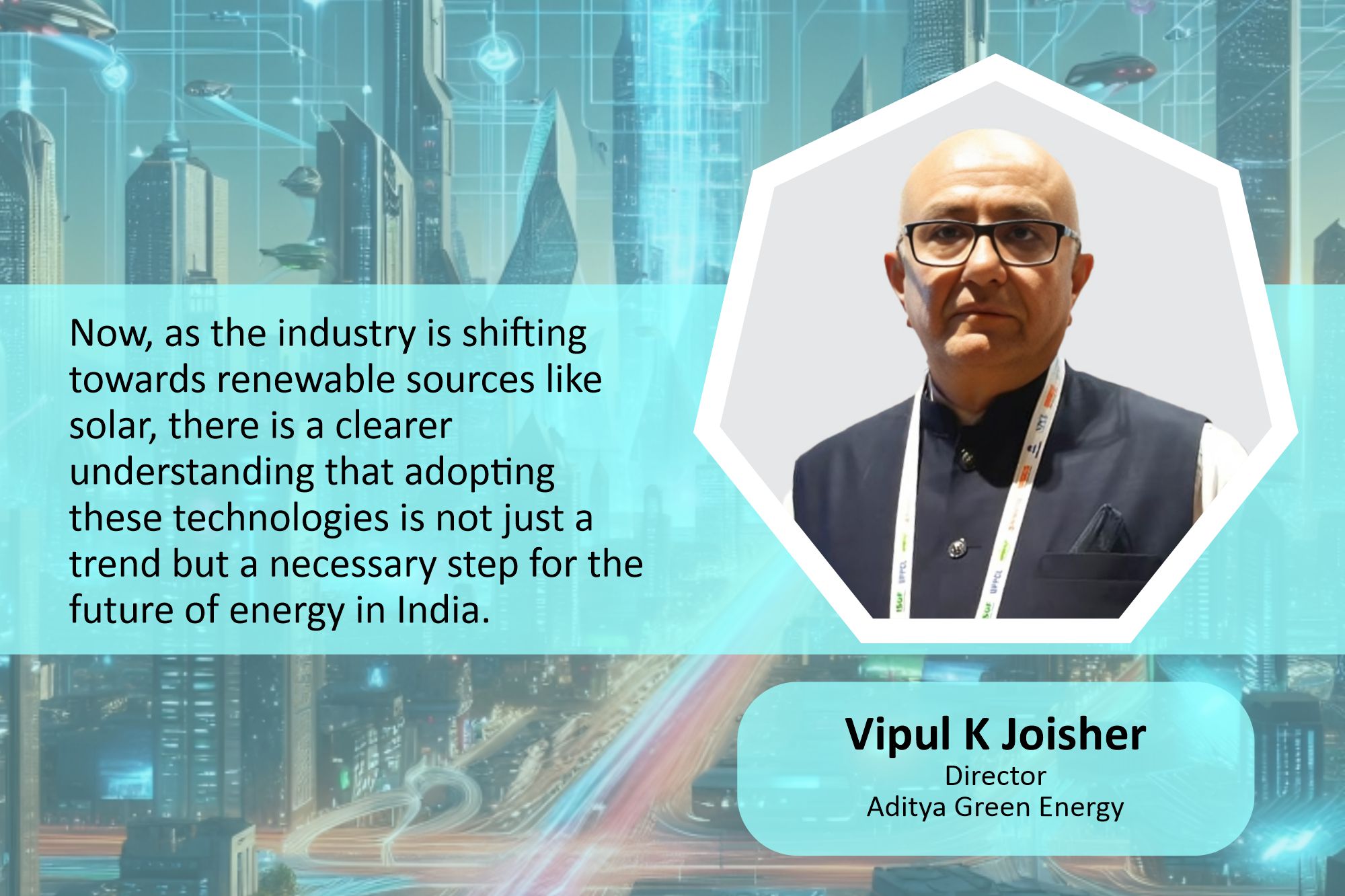Shifting from resistance to adoption of RE
By EPR Magazine Editorial December 7, 2024 4:58 pm IST
By EPR Magazine Editorial December 7, 2024 4:58 pm IST

It is important to note that DISCOMs struggled financially even before the widespread adoption of solar energy. These challenges were familiar and were exacerbated by long-standing inefficiencies and financial mismanagement.
The energy sector of India is undergoing a transformative shift towards renewable energy, with a focus on solar power and energy storage. At the same time, financial inefficiencies in DISCOMs are being addressed through public-private partnerships for long-term sustainability. EPR interacted with Vipul Joisher at the recently held Distribution Utility Meet (DUM) 2014 in Lucknow, during which he expressed his views on the current scenario of the power sector. Let us discover more.
Previously, there was resistance, with some stakeholders in denial about the potential of solar energy, preferring to stick with traditional sources. However, the narrative is changing, and there is growing recognition that solar energy is here to stay. Many players in the sector are starting to embrace the need for infrastructure changes and are actively adopting solar technologies, reflecting a shift from resistance to acceptance. This transition is crucial for ensuring long-term sustainability and energy security.
It is important to note that DISCOMs struggled financially even before the widespread adoption of solar energy. These challenges were familiar and were exacerbated by long-standing inefficiencies and financial mismanagement. Now, as the industry shifts towards renewable sources like solar, there is a clearer understanding that adopting these technologies is not just a trend but a necessary step for the future of energy in India.
How can public-private partnerships be optimised to drive sustainable infrastructure development in the power sector?Public-private partnerships (PPP) are the key to driving infrastructure development, especially in sectors where the government cannot solely invest. While PPPs’ definition, roles, and scope may evolve, private investment remains crucial. A prime example is Air India, where the government invested heavily—approximately 20 crores per day—yet ultimately had to privatise the airline by selling it to Tata. This illustrates the limitations of government funding and the necessity of private sector participation in creating sustainable, efficient infrastructure solutions. The future of many large-scale projects hinges on effective collaboration between public and private entities.
The last decade was undeniably a transformative period for solar energy. Still, the upcoming decade is set to focus on energy storage, which will play a pivotal role in shaping the future of energy consumption. The cost of storage is expected to decrease significantly in the near future, potentially making energy storage systems more affordable. With solar production costs dropping to as low as ₹1.50 to ₹1.70 per unit, adding energy storage at ₹4 per unit would still make it cheaper for commercial, residential, and industrial customers. This reduction in overall energy costs will make solar and storage solutions more accessible to a broader range of consumers, benefiting both industries and individual households.
The larger impact of this transformation lies in its potential to reduce operational costs for industries. By cutting energy expenses—potentially up to 80 percent through a combination of solar power and storage—industries can lower their overall production costs. This, in turn, allows them to sell products at more competitive prices, expand employment opportunities, and enhance exports. As industries become more cost-efficient, their ability to compete internationally will strengthen, making them more resilient against global competitors like China.
Ultimately, these cost reductions will benefit the general public indirectly. Lower production costs allow industries to grow, increase output, and contribute to job creation. Additionally, reducing energy costs makes industries more sustainable, contributing to long-term economic and environmental benefits for society.
We use cookies to personalize your experience. By continuing to visit this website you agree to our Terms & Conditions, Privacy Policy and Cookie Policy.